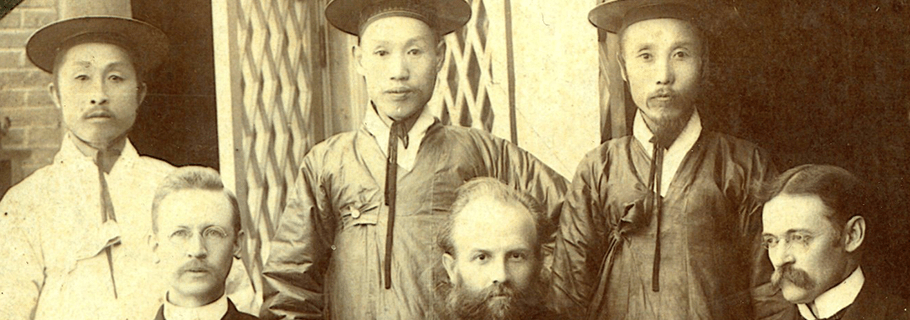This is the fourth article in a series penned by Joel Kim, President of Westminster Seminary. In each entry he is reflecting on the Olympics from a Korean-American perspective.
My friends and I recently visited Yanghwajin Foreign Missionary Cemetery in Seoul. As the name indicates, this is where 145 foreign missionaries to Korea and their family members are now buried and remembered. Among them are the families of Henry G. Appenzeller, Horace G. Underwood, and William D. Reynolds. Reynolds was a professor at Pyongyang Theological Seminary, but he is most often remembered for his contribution toward producing the first complete translation of the Bible in Korean which was published in 1910. This was not without great cost. Soon after their arrival in 1892, the Reynolds’ gave birth to their first son, William Davis. Their joy was soon followed by grief as little William died the same year he was born, now buried alongside many other children of missionaries who died while their parents served in Korea. The graves of these children at Yanghwajin were sober reminders of the sacrifices many missionaries (and their families) have made in their desire to bring the Gospel to Korea.
The faithfulness of missionaries has produced churches that are focused and passionate about cross-cultural missions. According to numbers compiled by Korea World Missions Association (KWMA), South Korea has sent out 27,436 missionaries in 2017, second only to the United States. Although the rate of growth has slowed in recent years, the number represents a significant increase from 2006, when around 15,000 missionaries were active. Moreover, these missionaries are in over 170 countries throughout the world with nearly 65 percent serving in parts of Asia, due primarily to geographical and cultural proximity.
This passion for cross-cultural missions is shared by Korean-American immigrant churches. It is not uncommon for the smallest of the 4,000 plus Korean-American churches to set aside a significant portion of the church’s budget for missions and proudly display the names of the supported missionaries in their weekly bulletins. Perhaps it is not by chance that the current head of the Lausanne Movement and the leader of missions in my own denomination (Presbyterian Church in America) are both Korean-Americans who were raised in these immigrant churches.
In addition, the faithfulness of many unknown and unsung missionaries has raised generations of Christians who make up the churches in South Korea today. Pastors like Rev. Do Sam Park who from 1957 faithfully served Songwol Presbyterian Church for 35 years in the city of Incheon among the poorest of poor who were recovering from the devastation of the Korean War. Near the end of his life, when asked the secret of his ministry success, he simply and humbly replied, “God did it all; I just stayed.” Or Christians like Jee Chul Kim who lost her husband and three of her four children during the Korean War, a tragic story of loss shared by many Korean families who lived through the war. Raising her only remaining son after the war, she was sustained by the grace of God and by the love and support of the members of the Second Presbyterian Church in Incheon. Poor by measure of earthly standards but blessed with a son who is a minister and five grandchildren who share her faith, she left her grandchildren with the gift of the Word of God, a hand-written copy of the Bible for each one of them. Why do I highlight these two people? I am proud to call Rev. Do Sam Park my maternal grandfather and Jee Chul Kim my paternal grandmother. But most importantly, I consider them my father and mother in faith upon whose shoulders I and many others stand.
It is true that South Korea has endured a lot of tragedies, but for Christians the story of the church in South Korea is one of God’s faithfulness through the many missionaries who have sacrificed so much and many Christians who remained faithful in the midst of much suffering and pain. So to all the missionaries, many of whom I consider dear friends, “be steadfast, immovable, always abounding in the work of the Lord, knowing that in the Lord your labor is not in vain” (1 Cor 15:58).










